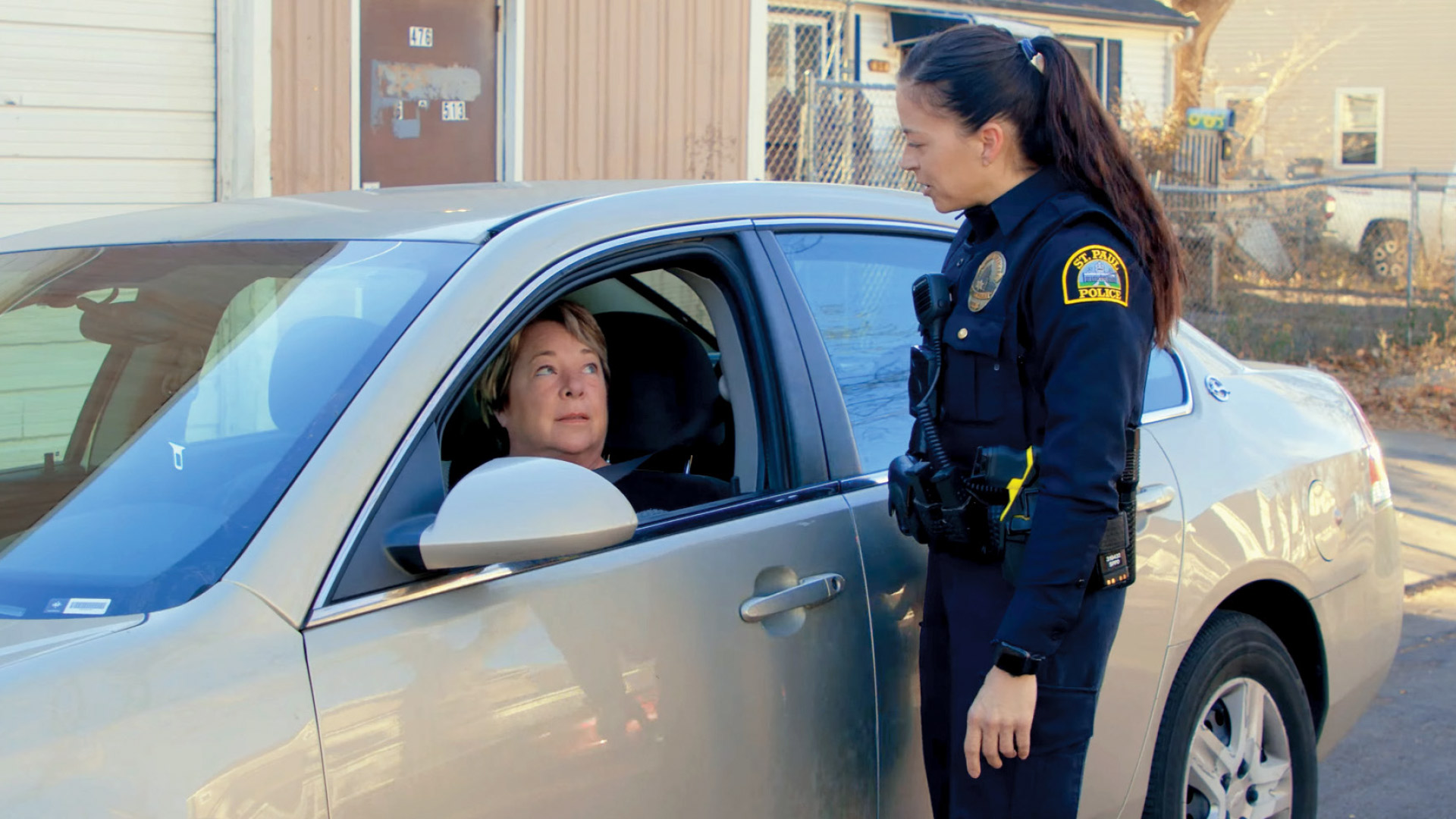[ad_1]

In an effort to ease the tension surrounding traffic stops, the St. Paul, Minnesota, Police Department hosted its inaugural Project Self Stop event on December 9 at the Minnesota State Fairgrounds.
The initiative, aimed at fostering a positive interaction between law enforcement and motorists, allowed participants to experience a simulated traffic stop, while also providing vouchers for free taillight repairs, courtesy of the Lights On! program.
Since 2017, over 800 individuals in the U.S. have lost their lives in incidents originating from traffic stops, according to a report by the Justice Innovation Lab.
Recognizing the need for change, St. Paul Police Chief Axel Henry looked to collaboration with the community to relieve anxiety during traffic stops.
“Traffic stops can be fraught, and you never know why an officer may have stopped you,” Chief Henry remarked. “We want to focus on bad behavior, not bad equipment.”
The Lights On! program, initiated in response to the tragic 2016 killing of Philando Castile, aims to prevent traffic stops from escalating into destabilizing events, either due to police escalation or mounting financial costs.
Sherman Patterson, vice president of Lights On!, stressed that while the program may not be a comprehensive solution, it is a vital component of the broader effort to enhance public safety and promote healing.
“It’s not the be-all solution, but it’s a part of the solution. A part of the healing process. A part of the public safety issue,” Patterson said.
Ramsey County Attorney John Choi, who announced the cessation of felony prosecutions stemming solely from low-level traffic stops in 2021, reported that the changes have not adversely affected public safety.
The move was a response to concerns about racial disparities in traffic stops, with Black drivers disproportionately targeted for minor infractions.
During the Project Self Stop event in St. Paul, police aimed to foster a stress-free environment for motorists to experience a simulated traffic stop.
During the stop, officers engaged with drivers in a supportive manner, offering advice and addressing concerns.
Motorists also received vouchers for free taillight repairs, covering up to $250 of the cost at participating auto repair shops.
Chief Henry encouraged drivers to understand that all traffic stops are recorded with body cameras, and they should expect to receive a card with the name of the stopping officer for follow-up questions or complaints.
“We can make all of that better if we work together and actually practice some things, and we can educate each other and fix some cars that need some repair right now,” Henry said.
The St. Paul Police Department, along with several other local law enforcement agencies, has recently shifted away from traffic stops for minor equipment violations.
Instead, the focus is on addressing criminal activity and moving violations that pose a threat to public safety.
[ad_2]




